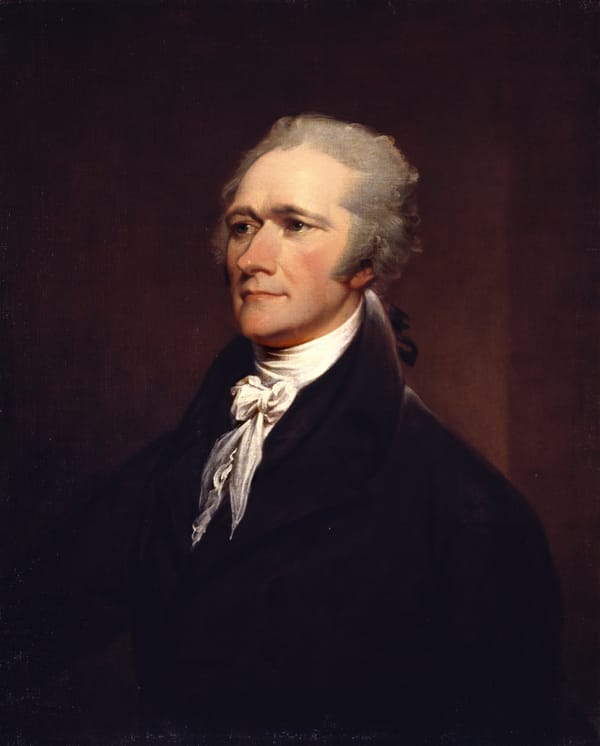Skrmetti Shows That Equality Is About Social Meaning
This morning, in United States v. Skrmetti, the Supreme Court held that a Tennessee ban on treatment for gender dysphoria in minors does not offend the Equal Protection Clause of the Fourteenth Amendment. Several of the Justices would have reached this conclusion on the grounds that the Fourteenth Amendment does not forbid discrimination against transgender people at all. But that wasn't the majority's reasoning. Roberts and Gorsuch, you see, were among the votes for the good guys in Bostock v. Clayton County, the landmark case a few years back holding that the Civil Rights Act of 1964, in forbidding sex discrimination, also forbade discrimination against queer people, including trans people.
So today they came up with a bullshit way to distinguish Shrmetti from Bostock. Ah, you see, the Tennessee law simply does not discriminate against trans people in the first place! Rather it marks out a particular set of medical conditions – gender dysphoria, gender identity disorder, and gender incongruence – and regulates the treatment thereof. Never mind that these conditions are, rather by definition, only found in trans people; after all, in Geduldig v. Aiello the Court already held that discrimination against pregnant people does not count as sex discrimination. (And not for the kind of subtle troll reason that trans men can be pregnant.)
Obviously this is all shameful and repulsive. But I want to highlight a jurisprudential point that I think this case throws into particularly sharp relief: it is impossible to construct a law of equality that does not take account of social meanings.
To see what I mean by this, consider the following. Suppose someone charged with murder argues that the murder laws violate the Equal Protection Clause, because, you see, they single out the class of "murderers" for special, disfavorable treatment. Now there's a few ways we can explain why this is wrong. In purely doctrinal terms, we could say that murderers do not receive the benefits of "heightened scrutiny." But this is kind of circular: it does not tell us why discrimination against murderers is not considered suspect.
Of course we could simply bite the bullet and say that, yes, there is discrimination here, and thus the state must meet the burden of heightened scrutiny, but it can do so, easily. But this is unsatisfying, too. The murder laws can survive heightened scrutiny, granted. But in general we do not think that every criminal statute should have to do so. That just imposes a higher burden on democratic lawmaking as a whole.
Moreover, we probably do not want to admit that laws that expressly discriminate against African-Americans, to take the paradigm case, can in theory be constitutional so long as there is a good enough reason for them. This is a longstanding frustration of mine with the existing doctrinal framework, which absolutely does insist on this theoretical possibility. Intuitively, we feel that the murder laws are not the same kind of thing as Jim Crow segregation, and should not be evaluated in the same fashion.
The most satisfying of the conventional explanations for this, I think, is that the murder laws regulate conduct. That is to say, it is not really right that they apply differently to murderers as a class. Everyone is forbidden from committing murder. Now, only some people find this burdensome; most people do not go around with murder in their hearts. So in that sense the law treats those of murderous nature differently from everyone else. But the law's response is, well, not my problem. If "wanting to commit crimes" made you a member of a special class for equal protection purposes, then the criminal laws would all have to come down. Suck it up, buttercup, and stop murdering people.
But now you can perhaps see the problem. Suppose the law forbids not murder but gay sex. The gay man complains that this discriminates against him, but the law says, far from it! Everyone is forbidden from engaging in homosexual conduct. Granted, not everyone wants to engage in homosexual conduct to begin with. But the same was true of murder. There is no disfavored class here: the law is general. Suck it up, buttercup, and stop having gay sex.
The shape of the argument is identical. And yet it seems intuitively obvious to me, as I hope it does for you, that the argument about gay sex (which was basically Antonin Scalia's argument in his dissent from Lawrence v. Texas) is horribly wrong, and is not really the same as the argument about murder. But why not??
The only answer to this question, in my view, is social meaning. This can be a difficult thing to describe, and there is no algorithmic means of divining it. But, look, we all know that the murder laws are general regulations of conduct and the gay sex laws are something different. We know this the same way we know what Jim Crow segregation meant. We know that the laws against medical transition for trans kids are no mere regulation of medicine, that they are instead driven entirely by a warped hatred, a demented need to stamp out nonconformity.
There is not really any way to explain, in formal, logical terms, why the one is different from the other. They just are. And we all know that they are. The point is to build a law of equality that allows us to act on that knowledge, rather than allowing bigots to hide behind empty formalism. Which, it should be noted, they will always do if given the opportunity: any formal test you adopt for what counts as discrimination can and will be exploited. As my grandfather put it in his article on the "state action" doctrine:
This state of doctrine will always seem deplorable to some lawyers.
But it is a state of doctrine imposed and not chosen. The "state action"
concept in the field to which I have limited myself has just one practical
function; if and where it works, it immunizes racist practices from
constitutional control. Those who desire to practice racism are therefore
motivated, even driven, to test it through total possibility; the
metaphor of Proteus is exact. And its potential variety is simply the
variety of all possible action by that complex entity that is called the
state. The commitment of the Court to a single and exclusive theory
of state action, or to just five such theories, with nicely marked limits
for each, would be altogether unprincipled, in terms of the most vital
principle of all - the reality principle. It would fail to correspond
to the endless variations not only of reality as presently given, but of
reality as it may be manipulated and formed in the hands of people
ruled by what seems to be one of the most tenacious motives in American
life. Such an arbitrary commitment would serve only to instruct racism
in the essentials of evasory tactics; it would make the law, classically,
"Their perch and not their terror." If it were impelled by anything
in authority, or in the nature of the issues arising in life, that were
perhaps another matter, but the very contradictory is true on both
scores. Such a formula, whatever its foresightedness in statement, would
decide in advance hundreds of classes of cases, without focal consideration
of the issues they will raise. As long as the "state action" concept
is looked to, even pro forma, for significant limitations, it will either
remain vague and ambiguous or become arbitrary, losing correspondence
to the varieties in life. At this stage of the game, as racism runs about
searching for a sheltered place, solution is to be sought not in the
clarification of "lines" now vague, but in a radical shift in approach, attitude, and expectation - a shift which one may hope will move the
entire profession.
In order to contend with the protean forces of hate and oppression, you simply must open your eyes to the social meaning that laws have, without limitation.

